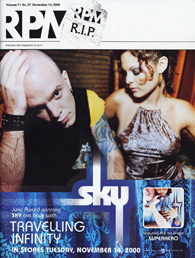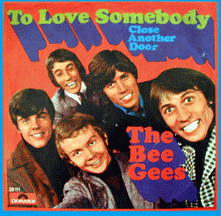Related Research Articles

In their native United Kingdom, between 1962 and 1970, the English rock band the Beatles released 12 studio albums, 13 extended plays (EPs) and 22 singles. However, the band's international discography is complicated, due to different versions of their albums sometimes being released in other countries, particularly during their early years on Capitol Records in North America. The Beatles' discography was originally released on the vinyl format, with full-length long plays (LPs), shorter EPs and singles. Over the years, the collection has also been released on cassette, 8-track, compact disc (CD), on a USB flash drive in MP3 and 24-bit FLAC format, and on digital media streaming services. Although their output has come to include vault items and remixed mash-ups, the Beatles' "core catalogue", recorded between 1962 and 1970, comprises 213 songs, totalling approximately 10 hours of music. Additionally, they released five tracks that are different versions of previously released songs: "Love Me Do", "Revolution", "Get Back", "Across the Universe" and "Let It Be"; two tracks in German: "Komm, Gib Mir Deine Hand" and "Sie Liebt Dich"; and two tracks that are duplicates of songs included on previous albums but also included on the album Yellow Submarine: "Yellow Submarine" and "All You Need Is Love".
"The Wayward Wind" is a country song written by Stanley Lebowsky (music) and Herb Newman (lyrics).

RPM was a Canadian music industry publication that featured song and album charts for Canada. The publication was founded by Walt Grealis in February 1964, supported through its existence by record label owner Stan Klees. RPM ceased publication in November 2000.

Bobbie Gentry and Glen Campbell is a studio album by American singer-songwriters Bobbie Gentry and Glen Campbell. It was released on September 16, 1968, by Capitol Records.

The following is the discography of the American rock band the Doors. Formed in Los Angeles in 1965, the group consisted of Jim Morrison (vocals), Ray Manzarek (keyboards), John Densmore (drums), and Robby Krieger (guitar). The Doors became one of the most popular rock bands of their era. Their debut album, The Doors (1967), released by Elektra Records, charted at No. 2 on the US Billboard 200 and produced the group's most successful single, "Light My Fire". The album received several sales certifications including a four times multi-platinum from both the Recording Industry Association of America (RIAA), and from the Canadian Recording Industry Association (CRIA). The Doors' second studio album, Strange Days (1967), often recognized as their most creative output, failed to produce a major hit single, though the album sold well commercially but did not reach the same level of success as the debut. It reached No. 3 on the Billboard 200 and was certified platinum in the United States and Canada. The Doors' third studio album Waiting for the Sun (1968), was regarded as an artistic disappointment when compared to their earlier material. However, commercially it was very successful and reached No. 1 in the US and France, and produced their second No. 1 single, "Hello, I Love You". Waiting for the Sun was the first Doors album to chart in the United Kingdom, where it peaked inside the Top 20. The album was certified gold in that country by the British Phonographic Industry (BPI), as well as being certified gold and platinum in several other countries.
"By the Time I Get to Phoenix" is a song written by Jimmy Webb. Originally recorded by Johnny Rivers in 1965, it was covered by American country music singer Glen Campbell on his album of the same name. Released on Capitol Records in 1967, Campbell's version topped RPM's Canada Country Tracks, reached number two on Billboard's Hot Country Singles chart, and won two awards at the 10th Annual Grammys. Broadcast Music, Inc. (BMI) named it the third most performed song from 1940 to 1990. The song was ranked number 20 on BMI's Top 100 Songs of the Century. Frank Sinatra called it "the greatest torch song ever written."

"To Love Somebody" is a song written by Barry and Robin Gibb. Produced by Robert Stigwood, it was the second single released by the Bee Gees from their international debut album, Bee Gees 1st, in 1967. The single reached No. 17 in the United States and No. 41 in the United Kingdom. The song's B-side was "Close Another Door". The single was reissued in 1980 on RSO Records with "How Can You Mend a Broken Heart" as its flipside. The song ranked at number 94 on NME magazine's "100 Best Tracks of the Sixties". It was a minor hit in the UK and France. It reached the top 20 in the US. It reached the top 10 in Canada.
"Drinking Champagne" is a song written by Bill Mack. He released the first version of the song on Pike Records in the mid-sixties. The song grabbed nationwide attention when the version by Cal Smith reached #35 on the country music charts in 1968.
"Then You Can Tell Me Goodbye" is a song written by John D. Loudermilk. It was first released in 1962 by Don Cherry, as a country song and again as a doo-wop in 1967 by the group The Casinos on its album of the same name, and was a number 6 pop hit that year. The song has since been covered by Eddy Arnold, whose version was a number 1 country hit in 1968, and by Neal McCoy, whose version became a Top 5 country hit in 1996.
"Sweet Memories" is a song by Mickey Newbury, brought to success by Andy Williams. The song reached #4 on the adult contemporary chart and #75 on the Billboard chart in 1968.
"Happy State of Mind" is a single by American country music artist Bill Anderson. Released in July 1968, it was the first single from his album Happy State of Mind. The song peaked at number 2 on the Billboard Hot Country Singles chart. It also reached number 1 on the RPM Country Tracks chart in Canada.
"Wild Week-End" is a single by American country music artist Bill Anderson. Released in March 1968, it was the first single from his album Wild Weekend. The song peaked at number 2 on the Billboard Hot Country Singles chart. It also reached number 1 on the RPM Country Tracks chart in Canada.
"Big Girls Don't Cry" is a single by American country music artist Lynn Anderson. Released in July 1968, it was the first single from her album Big Girls Don't Cry. The song peaked at number 12 on the Billboard Hot Country Singles chart. It also reached number 1 on the RPM Country Tracks chart in Canada.

"Dreams of the Everyday Housewife" is a song written by Chris Gantry and recorded by American country music artist Glen Campbell. It was released in July 1968 as the first single from his album Wichita Lineman. The song peaked at number 3 on the Billboard Hot Country Singles chart. It also reached number 1 on the RPM Country Tracks chart in Canada.
"The Last Time I Saw Her" is a song written by Gordon Lightfoot and recorded by American country music artist Glen Campbell. It was released in June 1971 as the second single from his album of the same name, The Last Time I Saw Her. The song peaked at number 21 on both the U.S. Billboard Hot Country Singles chart and the RPM Country Tracks chart in Canada. Lightfoot had recorded the song for his 1968 album Did She Mention My Name?.
"You've Still Got a Place in My Heart" is a song written and originally recorded by American country music artist Leon Payne in 1950.
"Count Your Blessings, Woman" is a single by American country music artist Jan Howard. Released in February 1968, the song reached #16 on the Billboard Hot Country Singles chart. The single was later released on Howard's 1968 album of the same name. The song was written by fellow country artist, Bill Anderson. The song additionally peaked at #8 on the Canadian RPM Country Tracks chart, her first single to chart in Canada.
"No Another Time" is a song recorded by Lynn Anderson, which she released in 1968 as a single and on her album Promises, Promises. It spent 14 weeks on Billboard's Hot Country Singles chart, reaching No. 8, while reaching No. 7 on Record World's Top C&W Singles chart, No. 12 on the Cash Box Country Top 50, and No. 19 on Canada's RPM Country Chart.